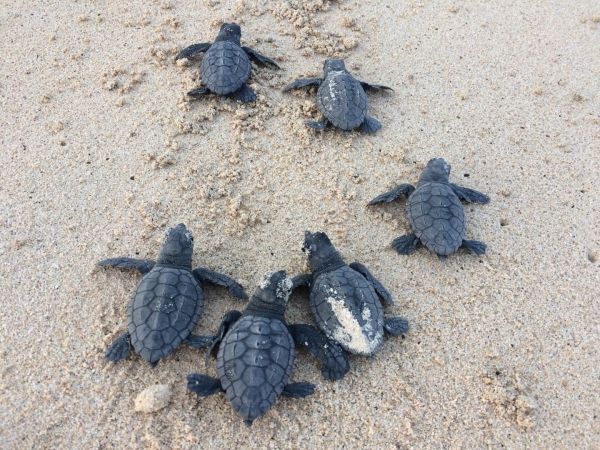The University of Exeter study also warns that – by 2100 – more than 90% of loggerhead nests on the Cape Verde islands could incubate at “lethally high temperatures”, killing turtles before they hatch.
The sex of turtle hatchlings is determined by incubation temperature, and this study combined current temperature and hatchling data with projections from the Intergovernmental Panel on Climate Change (IPCC).
Even under a scenario based on low future emissions and warming, by 2100 just 0.14% of hatchlings would be male.
Under mid and high-emissions scenarios, hatching of male loggerheads could cease entirely.
“Cape Verde hosts one of the largest nesting population of loggerhead turtles in the world – up to 15% of the global nesting total,” said Dr Lucy Hawkes, of the University of Exeter.
Read more at: University of Exeter
Loggerhead turtles in Cape Verde. (Photo Credit: Lucy Hawkes)


